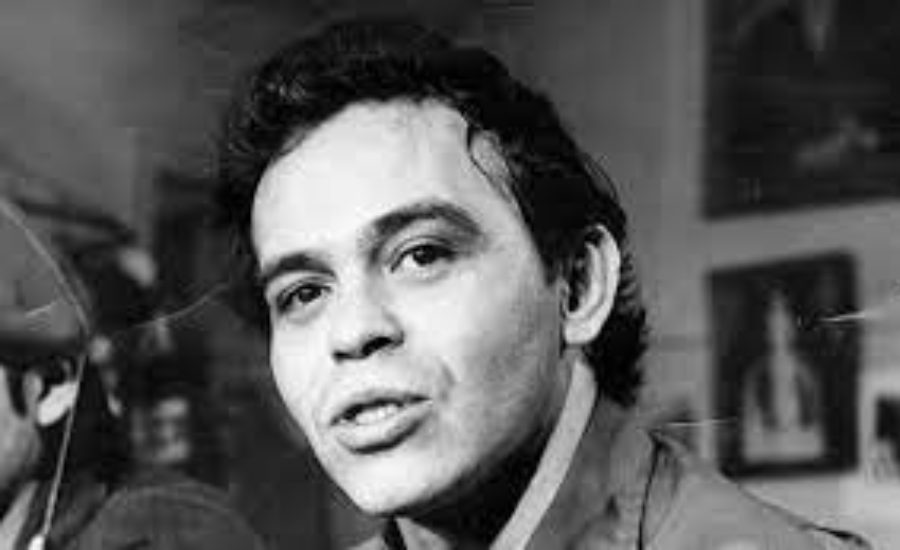Unveiling The Legacy Of Hank Adams: A Champion For Native American Rights And Sovereignty
Hank Adams was a visionary leader in the Indigenous rights movement, whose tireless advocacy and legal strategies helped transform the landscape of Native American activism. A member of the Assiniboine-Sioux tribe, Adams’ contributions to advancing Native American sovereignty and legal rights continue to resonate, despite his often-overlooked role in the larger civil rights and Indigenous struggles of the 20th century. Through his determination and unique legal and organizational skills, Adams fundamentally reshaped the dialogue on Native American rights and sovereignty, fighting tirelessly for the future of Native communities across the United States.
Who Is Hank Adams?

Hank Adams is a prominent Indigenous activist, legal strategist, and leader known for his lifelong dedication to advocating for Native American rights, sovereignty, and environmental justice. As a member of the Assiniboine-Sioux tribe, Adams has played an instrumental role in numerous legal battles and social movements aimed at securing the rights of Native communities across the United States. Throughout his career, Adams has remained committed to promoting Native sovereignty, cultural preservation, and the improvement of living conditions for Indigenous peoples.
Hank Adams: Biography And Wiki
| Attribute | Details |
| Full Name | Hank Adams |
| Born | 1943 |
| Birthplace | Fort Peck Indian Reservation, Montana, United States |
| Tribe | Assiniboine-Sioux |
| Occupation | Indigenous Rights Activist, Legal Strategist, Community Organizer |
| Key Contributions | Advocacy for Native American fishing rights, Treaty rights, Environmental justice, Land protection |
| Notable Achievements | Boldt Decision (1974), Advocacy for Native sovereignty, Environmental protection efforts |
| Education | University of Washington (studied Native American history, law, and sovereignty) |
| Notable Movements | Fish Wars, American Indian Movement (AIM), Treaty Rights Movement |
| Legacy | Trailblazer in Indigenous rights, Influential legal strategist, Inspiration for future activists |
| Awards | American Indian Distinguished Service Award, Numerous accolades for contributions to Native rights |
| Personal Traits | Humble, Resilient, Strategic thinker, Advocate for collective action and community-based activism |
| Death | Still living (as of 2024) |
His work continues to inspire Indigenous communities and advocates for justice and sovereignty.
Early Life And Influences: A Foundation Of Resistance

Born in 1943 on the Fort Peck Indian Reservation in Montana, Hank Adams’ early life was defined by the systemic challenges faced by Native American communities. Growing up amidst the poverty and social marginalization of his people, Adams quickly became acutely aware of the injustices that permeated every aspect of Native life.
As a child, Adams listened intently to the stories of his elders, who shared the struggles of their people and the impact of government neglect. These lessons ignited a lifelong commitment in Adams to confront these injustices head-on. His understanding of the importance of tribal sovereignty and the preservation of cultural identity deepened over time, leading him to pursue education in Native American history, law, and sovereignty, areas that would lay the foundation for his activism. By the time he enrolled at the University of Washington, Adams had already begun to see the larger picture of how systemic racism and exploitation had become ingrained in the relationship between Native American communities and the U.S. government.
The Rise Of A Strategic Activist: The Fish Wars And Treaty Rights
The 1960s and 1970s marked a period of profound social change in America, with the Civil Rights Movement and other movements for justice beginning to gain traction. For Hank Adams, this era represented a critical turning point in his activism, as he began to focus his efforts on defending the fishing rights of Native American tribes in the Pacific Northwest. The U.S. government had long violated treaties that guaranteed Native peoples the right to fish in their traditional waters, a cornerstone of their cultural practices and economic survival. These treaty rights were under direct threat from state governments in Washington, Oregon, and Idaho, which imposed restrictive regulations on Native American fishing, aiming to limit tribal access to these vital resources.
Adams’ legal expertise and leadership in organizing grassroots movements helped spearhead the Fish Wars, a direct challenge to these infringements on treaty rights. During this period, Native American fishers, led by Adams, organized “fish-ins,” a form of civil disobedience where they intentionally defied state-imposed fishing laws to assert their treaty rights. The Fish Wars, which drew national attention to the plight of Native American communities and their struggle to protect their lands and resources, would go on to become one of the most significant chapters in the history of Native American activism.
His strategic thinking, collaboration with other activists, and focus on unity across tribal lines made him a key player in the legal battles that would follow.
A Landmark Achievement: The Boldt Decision

Hank Adams’ most significant victory came in 1974 when he played a pivotal role in the Boldt Decision, a landmark court ruling that affirmed the fishing rights of Native American tribes in the Pacific Northwest. This decision, resulting from the case United States v. Washington, marked a turning point in the struggle for Native American sovereignty and treaty rights. The court ruled that Native American tribes were entitled to 50% of the annual salmon catch in their traditional fishing waters, a decision that not only honored the treaties signed by the U.S. government but also reaffirmed the legal validity of Native American rights.
Adams’ legal acumen, tireless research, and strategic advocacy were crucial in bringing the case to fruition. The Boldt Decision set a powerful legal precedent, ensuring that future generations of Native American leaders would have the legal tools to continue fighting for their rights.
Beyond The Courts: A Holistic Approach To Native American Sovereignty
While the Boldt Decision was a historic victory, Adams’ activism extended far beyond the legal realm. Throughout his career, Hank Adams was deeply committed to a holistic approach to Native American sovereignty, which included not only the defense of legal rights but also the protection of land, culture, and identity. Adams recognized that Native sovereignty was inextricably linked to the preservation of the land, which sustained the spiritual and cultural practices of Native communities. He fought tirelessly to safeguard sacred sites from environmental degradation and corporate exploitation, often working in collaboration with environmental justice movements.
Adams’ commitment to improving the quality of life for Native communities extended to advocacy in areas such as healthcare, education, and housing. He was a vocal critic of government neglect and worked to ensure that Native communities had access to essential services and resources. His work helped raise awareness of the systemic inequalities that continued to afflict Native communities and provided a framework for future activists to continue the fight for justice.
Legacy Of Resilience: Inspiring Future Generations Of Native Leaders

Hank Adams’ legacy is one of perseverance, strategic thinking, and deep-rooted commitment to justice. Though he faced significant opposition, including threats to his safety, public criticism, and personal sacrifice, his resilience remained unwavering. He continued to lead with humility, consistently emphasizing the collective efforts of Indigenous communities rather than seeking personal recognition for his achievements. This focus on the greater good helped foster a sense of unity and solidarity among activists, legal experts, and community leaders, laying the groundwork for future successes in the fight for Native American rights.
Adams’ legacy continues to inspire Indigenous activists today, as his advocacy efforts helped secure important victories in the courts and in the broader public discourse. Adams’ work has also inspired a new generation of environmental justice advocates who view the fight for Native sovereignty as inseparable from the preservation of the natural resources that sustain Native communities.
A Lasting Influence: The Continuing Relevance Of Hank Adams’ Work
As Native American communities face new challenges in the 21st century, Hank Adams’ principles and strategies remain just as relevant as ever. With the growing threats of environmental degradation, climate change, and corporate encroachment on sacred lands, Adams’ vision for a unified, strategic, and culturally grounded movement is crucial to the future of Native American rights. His ability to navigate legal systems, unite diverse communities, and advocate for long-term solutions to systemic problems continues to serve as a guiding light for activists working today.
Hank Adams’ life’s work serves as a powerful reminder of the importance of resilience, strategic action, and unity in the pursuit of justice. His influence on Native American activism and his dedication to preserving the rights, culture, and sovereignty of Indigenous peoples remain invaluable resources in the ongoing struggle for equity and justice.
FAQs About Hank Adams
Q1: What Role Did Hank Adams Play In The Fish Wars?
A1: Hank Adams was a pivotal figure in organizing protests and legal challenges during the Fish Wars, defending Native fishing rights. His strategic leadership in the Fish-ins highlighted the importance of protecting Native treaty rights.
Q2: What Was The Boldt Decision And Hank Adams’ Involvement?
A2: The Boldt Decision (1974) affirmed Native American fishing rights. Hank Adams contributed greatly to this landmark legal victory, securing essential treaty rights for Pacific Northwest tribes.
Q3: How Did Hank Adams Contribute To Native American Self-Determination?
A3: Hank Adams advocated for Native sovereignty, promoting legal and cultural efforts to empower Native communities and protect their rights and resources.
Q4: What Challenges Did Hank Adams Face During His Activism?
A4: Throughout his career, Hank Adams encountered opposition from both state and corporate entities, yet he remained dedicated to fighting for Native rights.
Q5: What Lasting Impact Has Hank Adams Had On Native American activism?
A5: Hank Adams’ efforts continue to inspire Native American activists today. His work paved the way for legal and social progress in Native American rights.
Conclusion
Hank Adams is a key figure in the history of Native American advocacy. His tireless work led to major victories, such as the Boldt Decision, which recognized Native American fishing rights. This ruling affirmed the entitlement of tribes in the Pacific Northwest to share in the annual salmon catch, securing an important aspect of treaty rights.
He helped organize protests and legal challenges during the Fish Wars, asserting Native American rights to fish as promised in historical treaties. Through his leadership, Adams demonstrated the power of community action and legal strategy in advancing Native causes.
Hank Adams’ influence remains evident today, as his contributions continue to inspire a new generation of activists fighting for Indigenous sovereignty. His work serves as a model for combining legal expertise with grassroots activism to achieve social change, solidifying his legacy as a champion for Native American rights.
Stay in touch for the latest updates and alerts by visiting our site: Fashioniskcom!






